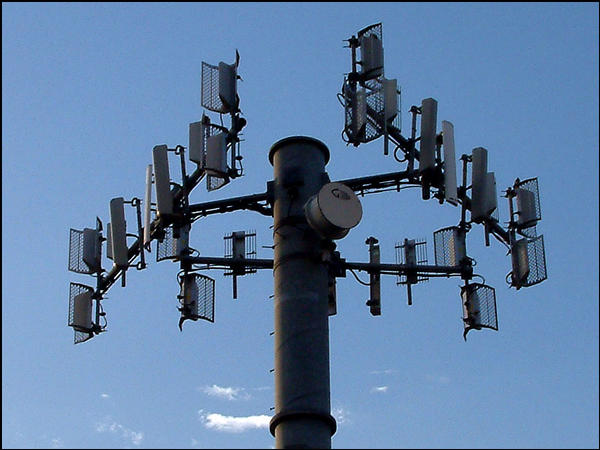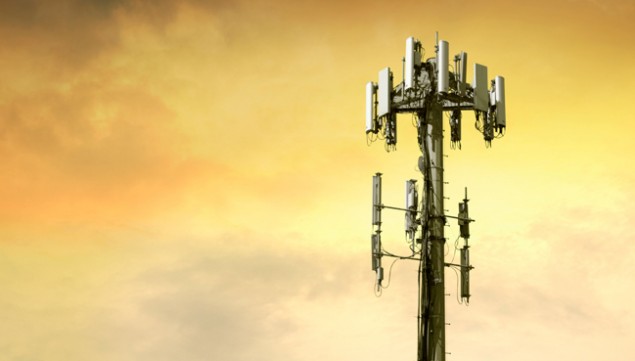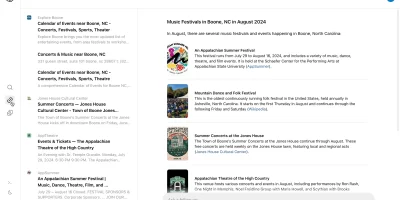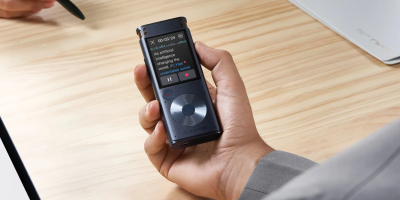Call it a landmark victory or whatever you’d like, but a US appeals court has just ruled that police must now have a warrant to track your cellular location. According to the 11th Circuit, “cell site location information” is within everyone’s reasonable expectation of privacy and thus, a 4th amendment right.
“In short, we hold that cell site location information is within the subscriber’s reasonable expectation of privacy. The obtaining of that data without a warrant is a Fourth Amendment violation.”
While this ruling wont overturn last year’s completely opposite 5th Circuit ruling (separate districts you see), it’s a start. If nothing else, this goes to show you the the uncertainty that still exists with 21st century privacy, an issue far from being defined. In a statement, the ACLU said about the ruling:
“The court’s opinion is a resounding defense of the Fourth Amendment’s continuing vitality in the digital age. The court soundly repudiates the government’s argument that by merely using a cell phone, people somehow surrender their privacy rights.”
We should also note that this is only regarding cellular location information and not that of GPS satellites. We hope this is only the the start of much broader phone location information privacy, cellular, GPS, or otherwise. What are you guys’ thoughts on the matter?












I cannot imagine that all the Founding Fathers who debated and ratified the Fourth Amendment during the convention and then those in all 13 states who debated and ratified those amendments would have thought for a New York Second (yet to be invented) that details, even metadata, about personal communication was not within the protected sphere of private data that government was forbidden to breach without a warrant.
But this brings up a broader point: the Iron Law of bureaucracy is that the scope and power of every bureaucracy will expand unless and until some greater power stops it. Up until now, the first constraint on bureaucracies was their budget. But government has given itself the power to create near infinite amounts of money in order to be able to spend more than the taxpayers want to pay for. So tax dollars are no longer a restraint on the size of government. Near infinite money enables near-infinite government and that is the trajectory we are headed to.
A growing number of people are realizing that the only way to bring government back into the confines of the enumerated powers in the Constitution is to restrict its ability to spend money. That is why the first change that an Article V convention the states are in the process of calling for must be to consider spending limits on government, followed by debt and money-printing limits. And after that, let us have a serious discussion about our “expectation of privacy” in where the Declaration of Independence, the Constitution and the Bill of Rights are written with a presumption of liberty, where it is the government whose powers are limited and the citizens rights are not.
I guess I’ve always been under the belief that the government’s power was limited, not the citizen’s, was how the Constitution was written in the first place, and that the federal (and state and local) government has been expanding it’s power every since the last of the Founding Fathers died, as they were no longer around to shout “What you are doing is not what we agreed upon in the Constitution!” I’m sure even before people were trying to expand the government’s reach, but at least in the beginning the people who actually framed our system were around to tell people exactly what they meant.
As far as the privacy issue goes, the police didn’t have the legal right to spy on people without a warrant before phones and the internet, I don’t see any logical reason why a change in communication styles, modes of travel, and forms of payment is thought suddenly make it OK. It’s the act of spying and it’s justification that is in question, not the method they use to do it.
Correct on all of your major points…the Bill of Rights is less about what people can do and more about what the Government Can’t. I hate how the clause about powers not enumerated to the Federal government are given to States and the people is basically just ignored in today’s society.
Yes, this is the difference between positive and negative rights. The constitution is a list of negative rights, telling the government what it can’t do. The people in power now want a list of positive rights, telling the people what they have a right to do. One limits the gov. and one limits us.
Experience has shown, that even under the best forms of government, those entrusted with power have, in time, and by slow operation, perverted it into tyranny.
The right to privacy is not explicit in the Constitution.Many SCOTUS cases have set precedents on what privacy means in specific cases. Yes, I agree that it violates our right to not get unreasonably searched w/o a warrant guaranteed by amendment 4. The problem with our legal system is that we need cases in controversy to even challenge bad statutes or gaps within the legal system.
Eff the police.
Amen to that!
Solid argument. Bulletproof.
So, I understand there are deep debates on philosophical levels, researchers of Amendments/laws/rights, etc – but to me the answer is simple on a basic level: warrants are the ‘audit’ trail of what police are doing. Of course they should be required.
Otherwise, who’s watching the watchers????
Not many people are watching law enforcement simply because law enforcement gets away with various questionable/unethical methods. If the ACLU had some of its way, several ethical issues would be nonexistent. Law enforcement has a blanket statement by saying its necessary for safety and people who “question that” are seen as “unpatriotic” by conformists.
So if you see someone drive off with your 5 year old in their car and you have a plate # and the cops could tie a cell # to that car, would you want them to get a search warrant before they pinpoint that phone?
In that scenario, a warrantless search would be upheld by the court. There is ENORMOUS precedent for emergency searches that skipped a judge because someone’s life was in danger. Generally, that’s kicking down a locked door when they hear someone screaming. In your case, though, it amounts to the same thing.
Being a police officer, I can already tell by the comments that I am going to get slammed, but I will do it any ways.
Does this apply to exigent circumstances as well? If an individual is reported missing or kidnapped, do the police still need the search warrant to get the location? Many times, these types of events occur late at night when judges are not available.
Does this mean that 911 systems will have to be modified to no longer pick up locations of cell phone users when calling in emergencies? Think children who don’t know their location, but have been taught 911 in school.
As for tracking criminals etc, I have absolutely no problem with the warrant requirement. I just think blanket legislation is just as dangerous as lack of legislation altogether.
Of course there is precedent for emergency circumstances involving a danger to public safety in the face of overwhelming evidence. If someone is screaming their head off in a house, the police don’t need a warrant to kick the door down. If someone gets kidnapped, it amounts to the same thing. Honestly, though, kidnappings go straight to the FBI, right?
No. They don’t. Many times , especially I. Smaller towns such as ours, the FBI are hours away at best. Sure, they will likely show up, but if local LE can make headway during that time frame, then why not. Besides, the FBI are more likely to violate this law than local LE.
I guess my question wasn’t clear enough. In a kidnapping situation, isn’t the protocol to immediately contact the FBI? I know that it doesn’t take a local person to pull the location data from a phone…it can be done the entire country away. My major points are – 1-The FBI is much more likely to have a judge that can give them a warrant as fast as possible when seconds count, and 2-Being that kidnappings and such are already their jurisdiction, overriding the rule due to imminent threat will look much better in court.
FBI will get notified of kidnappings via reporting paths – but not necessarily immediately. Most often the FBI responds to get involved when requested. Mostly by smaller police departments who do not have the resources. Large police departments can easily handle a kidnapping investigation, with the FBI getting involved IF and WHEN the case evolves requiring a federal response ( state lines/ransom/misc federal crimes) FBI may assist any department when the department needs specialized investigations.
It’s not like the movies with the FBI responding and telling the cops — We’ll take it from here —- that’s very far from reality.
Exigent circumstances currently faces hurdles by certain (small few) phone companies who request warrants, reports and several forms emailed/faxed back and forth. A lot of CYA stuff. Some phone companies will provide immediate phone tracking upon request as long as they meet some basic exigent circumstances.
Again, those are for exigent circumstances. Asking for 6 months of cell activity is not appropriate for a kidnapping that just occurred. However, it may be applicable to get past records when handling an on-going long term investigation. Like looking for a past predator. A warrant will be needed to get those detail HISTORY of records.
Read through the ruling – this is not a black and white simple ruling.
As for 911 callers – it’ll be no different than a landline 911 caller. The GPS location data will be capture only while on the active 911 phone call. One can easily argue, if you’re calling 911, you want the help (police, fire, medical) to know where you are located — at least as close as you can with cell GPS.
As stated earlier – search warrants do not happen within seconds. But they do occur in the middle of the night with on-call judges in larger communities. Also, search warrants are not that difficult to write/obtain if you just follow the rules and fall within the guidelines. Like one posted stated – it is a method of audit, checks and balances. That’s a good thing for obvious reasons.
Each day hundreds of people are helped, rescued, saved, and protected with the help of GPS. I do wish they would create a stronger punishment for the blatant violation of rights. – On the flip side, I don’t want public safety officials to be blocked from actually helping somebody. I’m not talking just police – I’m talking medical and fire too — So when grandma calls, says she needs an ambulance and passes out – or when that 14 year old girl is kidnapped by her 20 year old “boyfriend” – that help is not delayed.
What’s with “We should also note that this is only regarding cellular location information and not that of GPS satellites.”? GPS satellites can’t be used to track anything – they’re transmitters, not receivers. (They can receive satellites, but everyone already knows where Boulder, CO is at all times.) Your phone just receives the signals, and you can’t readily track a receiver like that. (Technically you can, but you need a truck full of equipment and a pretty big antenna array to do it practically.)
Was that supposed to mean “and not the location given to E-911 consoles from the phones, that includes GPS location”? If so, by calling 911, you kind of want them to know where you are – or you’re committing a felony of the kind that would justify a warrantless search (it’s an immediate threat to the life and safety of a responder, to start),
As with all new things, it’s probably going to have a few wrinkles ironed out over the years, but I think it’s a good place to start. There are enough precedents to cover exigent circumstances until they get spelled out in case law.
I’m pretty sure he’s referring to the difference between a triangulated location based on cell towers (accurate to about half of a football field) to location based on GPS. Of course, smart phones have GPS by default (although not always turned on), whereas all phones can be triangulated, smart or not.
For once my phone been quiet for two months. getting wayy to many unwanted calls on my phone don’t know why. my phone blocker app doesn’t work well. and glad they did this.